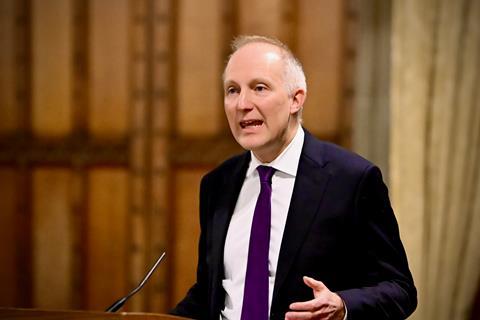The Bar Council has opposed the removal of the degree requirement in its response to the Bar Standards Board’s planned training reforms.
It has opposed three of the four proposed reforms as it would ‘lower standards’, make an assessment of standards difficult, and ‘transfer decisions away from the BSB to training providers’ with a ‘clear financial interest’.
The council said it was ‘broadly neutral’ on a proposal about changing the definition of academic legal training.
In its response, the Bar Council said it was ‘strongly of the view’ that the regulator should set the qualification requirements and retain any decision-making power regarding those qualifications, including exemptions.
It also disagreed with the proposal that authorised education and training organisations make admissions decisions based on the revised definition of academic legal training.
In answer to the proposal to no longer require a minimum 2:2 degree as a standard, the Bar Council said it should remain the minimum threshold for progression to vocational training. It added a degree classification was ‘highly indicative of successful outcomes for prospective barristers’. Some 96% of those who obtained pupillages in 2022-23 obtained either a first-class degree or a 2:1.

Since the Ormrod Report in 1971, entry to the bar has been restricted to graduates. The same requirement was necessary for solicitors but has since been overturned.
Sam Townend, chair of the Bar Council, said the ‘clear intent’ of the proposed reforms was to ‘increase yet further’ the number of individuals taking bar training courses but that lowering standards ‘is not the answer to improving access to and diversity’ within the bar.
He added: ‘We have studied the proposals carefully. The Bar Council objects to the majority of the BSB’s proposed reforms because they would lower standards, make the assessment of academic standards equivalent to degrees more difficult and transfer decisions away from the BSB, the regulator formally tasked with the job, to the training providers, who are not accountable and who have a clear financial interest in maximising the number of students taking up bar training.
‘There are already thousands taking the roughly 20 bar training courses, but only a little over 600 pupillage places. The clear intent of the regulator’s intended reform is to increase yet further the numbers taking bar training courses, inevitably ramping up further the numbers of students who will have paid the high level of fees but be disappointed in not obtaining a pupillage. We think this is the wrong approach.
‘The BSB’s own research shows that a primary indicator of success in securing pupillage is a high degree classification. There already are existing exceptional circumstances provided for. Lowering qualification standards is not the answer to improving access to and diversity within the profession.’
This article is now closed for comment.



























16 Readers' comments